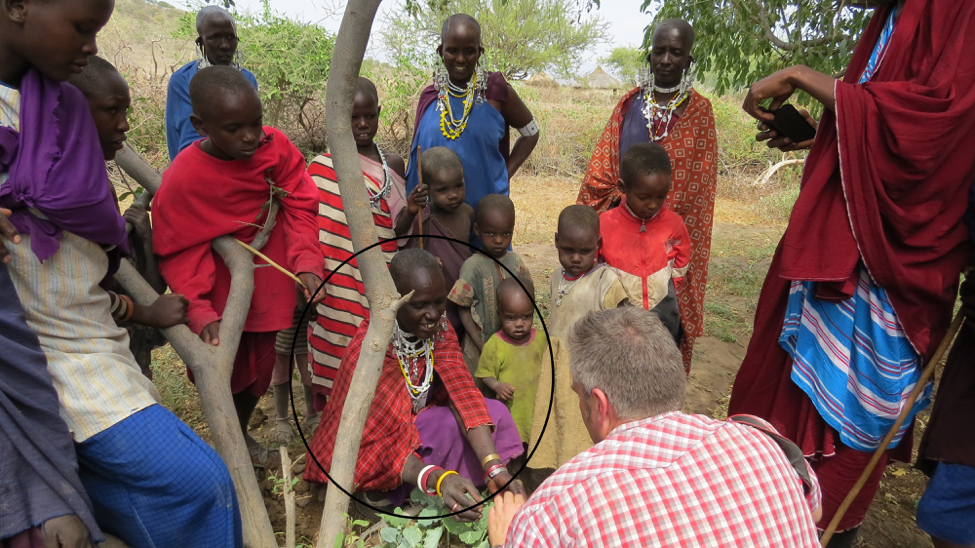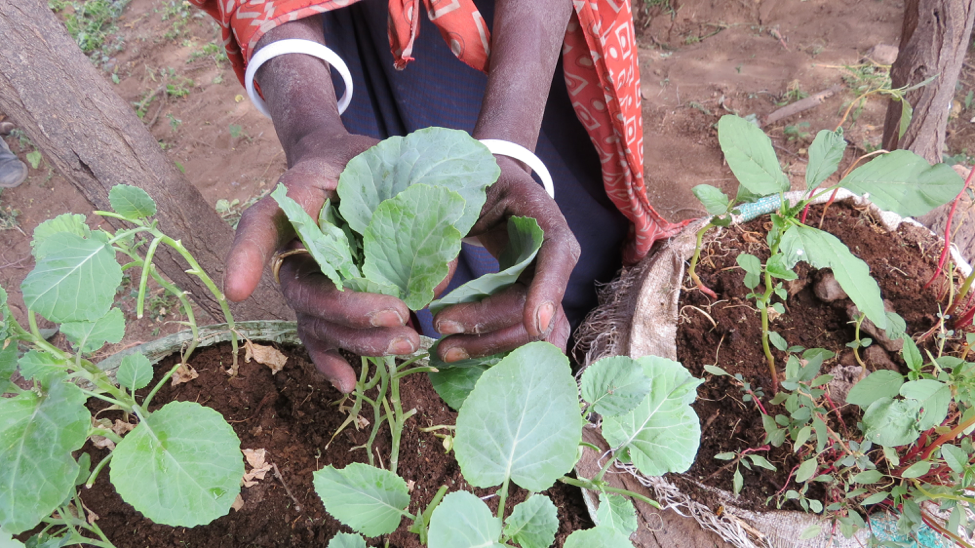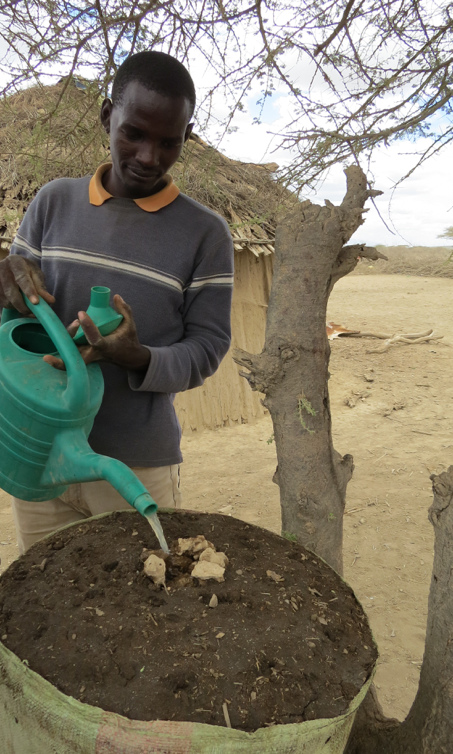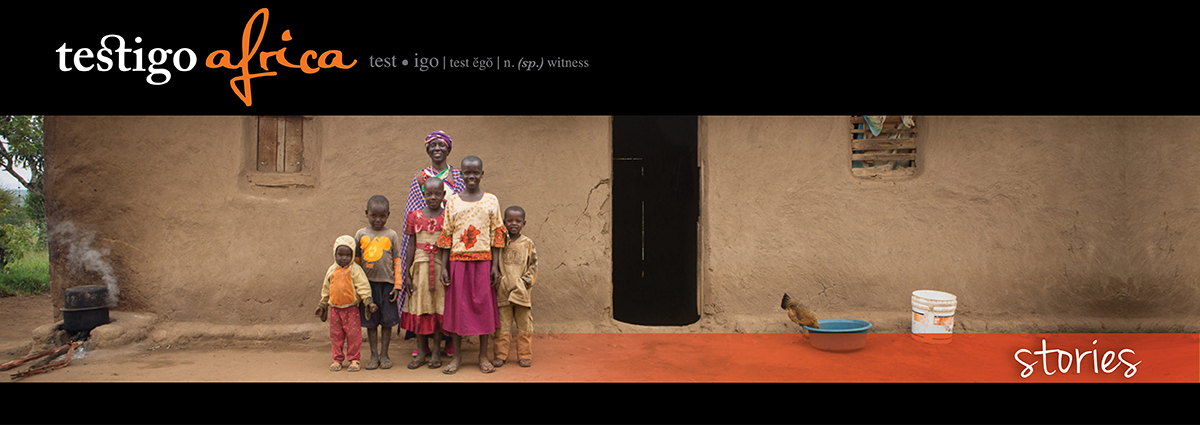Naitajewoki Abraham

Naitejewoki showing a visitor to Testigo's project the produce in her sack garden. Photo by Tracey Sawyer
Naitajewoki is the third of six wives of Abraham Loiruk, who is vice-chairman of Olchurai village. She has four sons. Her husband has a total of 18 children from his six wives. Naitejewoki joined Testigo's project because she had heard of the impact of Testigo's training from friends in another village. She had been selling Masai jewellery to try to make money, but had found this very hard as she had to compete with so many other women also selling their jewellery.
Before the project her life was very tough. She had to walk 12 kilometres to the market where she would try to sell her jewellery, and sometimes she'd return home not having sold anything. Being a Masai woman she is responsible for looking after her husband and sons, and struggled to to do this.
The project trained Naitajewoki how to grow vegetables and harvest rainwater using organic permaculture principles. She was taught how to prepare better soil using cow manure, how to make keyhole gardens, sack gardens and double dug beds, how to utilise grey water, how to plant, grow and harvest a range of vegetables, and how to deal with bugs using natural pesticides.
Naitajewoki no longer has to walk 12 kilometres to a market in the hope of selling her jewellery. She can stay at the boma (her home) where she is now self sufficient and providing food, nutrition and an income for her family from selling excess produce from her garden. She now is able to provide her family with two meals a day instead of one meal a day. She used income from selling her produce to buy a roof for her home, and she is saving more money to purchase rooves for her other mud huts.
She has nine double dug beds, four sack gardens and one keyhole garden, but plans to make more sack gardens because they are easy to prepare and use very little water.
The training has taken place over a six month period, and through very dry conditions, so that the beneficiaries can be flexible and learn how to best utilise scarce water. The beneficiaries have agreed to make regular contributions to a fund that is used to purchase seeds for the group, and they have seen over the six months how the gardens mean they can better feed their families, improve nutrition and make an income.

Produce lovingly tended. Photo by Tracey Sawyer

Testigo trainer, Philipo, demonstrating the construction and watering of a sack garden in Olchurai village. Photo by Tracey Sawyer
